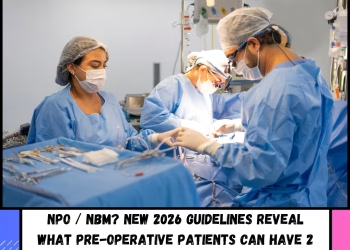Fellow Nurses Africa, Published: 3 July 2025
UK Prime Minister Unveils 10-Year NHS Plan to Transform Healthcare with Neighbourhood Health Services
The National Health Service (NHS) is embarking on a transformative journey with the launch of Neighbourhood Health Services, a key component of the government’s 10-Year Health Plan, announced by Prime Minister Sir Keir Starmer on 2 July 2025. For African healthcare professionals and patients in the UK, this initiative promises enhanced access to care, new opportunities for nurses, and a focus on tackling health inequalities. This guide outlines what these services mean for African communities, their benefits, and how they can shape a healthier future.

Understanding Neighbourhood Health Services
Neighbourhood Health Services aim to shift healthcare from hospitals to local communities, making care more accessible and convenient. These services will establish community health centres across the UK, operating 12 hours a day, six days a week. These centres will bring together multidisciplinary teams, including nurses, general practitioners (GPs), pharmacists, social care workers, health visitors, and palliative care staff, offering services like diagnostics, post-operative care, mental health support, dental care, and preventative programmes such as stop-smoking and weight management initiatives.
The initiative addresses challenges highlighted in Lord Darzi’s 2024 review, which described the NHS as in “critical condition” due to long waiting lists, low staff morale, and outdated technology. The 10-Year Health Plan focuses on three shifts: moving care from hospitals to communities, transitioning from analogue to digital systems, and prioritizing prevention over treatment. For African communities, who often face barriers like long travel times to hospitals and cultural insensitivity, these services offer a pathway to more equitable care.
Benefits for African Patients
African patients in the UK frequently encounter challenges such as health inequalities and difficulties navigating the healthcare system. Neighbourhood Health Services aim to address these by delivering care closer to home, reducing the need for hospital visits. For instance, a patient in a diverse area like Washwood Heath, Birmingham, could access diagnostics or mental health support at a local centre, where professionals collaborate under one roof.
These centres will also tackle social determinants of health, such as poverty, which disproportionately affect African communities. Social prescribing, as seen in trials, connects patients to community activities to combat issues like loneliness, potentially saving significant healthcare costs. The press release notes that integrated teams in Derby reduced ambulance callouts by 2,300 and short hospital stays by 1,400 among older adults in a year, illustrating the potential impact.
Dental care, a pressing issue for underserved communities, is also prioritized. Dental therapists and nurses within neighbourhood teams will provide check-ups, preventative treatments like fluoride varnish for children, and education. By 2027, the plan aims for 95% of patients with complex needs—such as diabetes, prevalent in African populations—to have personalized care plans co-created with their families, ensuring tailored support.
Opportunities for African Healthcare Professionals
African healthcare professionals, particularly nurses, are integral to the NHS, with ethnic minority staff making up significant portions of the workforce. Neighbourhood Health Services offer new opportunities for career growth. Nurses will lead in delivering holistic care and community outreach, such as door-to-door initiatives to detect early illness. The plan includes training thousands more GPs and upskilling professionals from 2026, enabling nurses to work at the top of their clinical potential.
Digital innovations, like AI scribes to reduce administrative tasks and digital telephony for faster patient access, will enhance efficiency, allowing nurses to focus on care. However, challenges persist. Web sources, including the NHS Race and Health Observatory, highlight that Black African and Caribbean staff face higher rates of workplace discrimination. The NHS’s Patient and Carer Race Equality Framework, mandatory since April 2024, aims to promote anti-racism, which could improve working conditions for African nurses.
Tackling Health Inequalities
African communities in the UK face higher rates of chronic conditions like diabetes and cardiovascular disease, often worsened by systemic inequalities. Neighbourhood Health Services emphasize preventative care and early intervention to address these disparities. Community outreach will identify health issues early, reducing pressure on GPs and A&E departments. The inclusion of culturally sensitive care is vital, as studies show Black patients may receive less evidence-based treatment for conditions like psychosis due to biases. Neighbourhood teams can collaborate with local organizations to ensure care meets the cultural and linguistic needs of African patients.
Challenges to Address
The plan’s success hinges on sustained investment and addressing systemic issues. Workforce discrimination remains a concern, and the government must ensure diversity initiatives translate into real change. For patients, equitable access to digital tools, like the NHS App for centralized records, is critical. African communities with limited digital literacy may need support to fully benefit. Scaling services nationwide will require funding and coordination, with early trials suggesting costs could be manageable by using existing infrastructure.
How African Professionals and Patients Can Engage
African healthcare professionals can shape these services by engaging with Integrated Care Boards (ICBs) and advocating for culturally competent care. Participating in training programmes will position nurses as leaders in community health. Patients can visit change.nhs.uk to stay informed about the 10-Year Health Plan, provide feedback, and access local services like dental care or social prescribing to build healthier communities.
A Healthier Future Ahead
The NHS Neighbourhood Health Services mark a bold step towards a more accessible and equitable health system. For African professionals and patients, this initiative offers opportunities to bridge care gaps and enhance community health. As Health Secretary Wes Streeting stated, “This is an NHS truly fit for the future.” By embracing these changes, African communities can help create a health system that serves all.
Fellow Nurses Africa is the independent voice of African nursing, we educate, inform and support the nursing profession.










